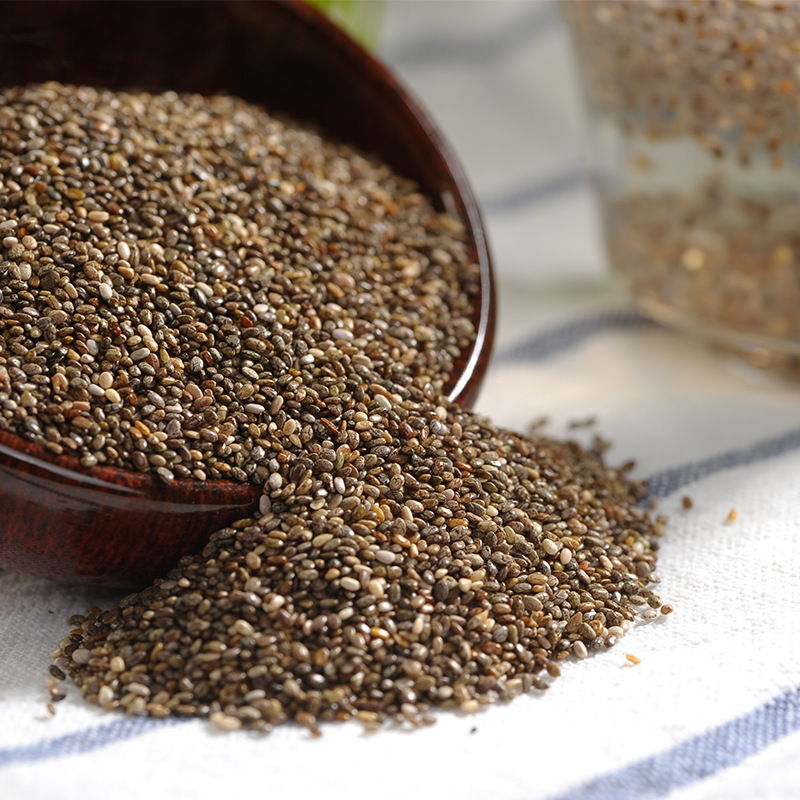Chia seeds are small, nutrient-dense seeds derived from the Salvia hispanica plant, which is a member of the mint family. These seeds have gained popularity for their nutritional benefits and versatility in various culinary applications. Here are some key points about chia seeds:

1.Nutritional Content: Chia seeds are rich in nutrients, including fiber, protein, omega-3 fatty acids, vitamins, and minerals. They are particularly known for their high content of alpha-linolenic acid (ALA), a plant-based omega-3 fatty acid.
2.Hydration Ability: Chia seeds have the unique ability to absorb liquid and form a gel-like consistency. When soaked in water or other liquids, they expand and develop a gelatinous texture, making them a popular ingredient in puddings, smoothies, and beverages.
3.Dietary Fiber: The fiber content in chia seeds is primarily soluble fiber, which may contribute to digestive health. The gel-like consistency formed by chia seeds can also help with satiety and weight management.
4.Antioxidants: Chia seeds contain antioxidants that help protect the body from oxidative stress and inflammation.
5.Versatile Culinary Uses: Chia seeds can be incorporated into a variety of dishes. Common uses include adding them to smoothies, yogurt, oatmeal, or salads. Chia pudding, made by soaking chia seeds in liquid until they form a gel, is a popular and nutritious snack or dessert.
6.Gluten-Free and Plant-Based: Chia seeds are naturally gluten-free, making them a suitable option for individuals with gluten intolerance or celiac disease. They are also a plant-based source of protein, making them a valuable addition to vegetarian and vegan diets.
7.Storage: Chia seeds have a long shelf life and can be stored in a cool, dry place. Their neutral flavor makes them adaptable to both sweet and savory dishes.
When consuming chia seeds, it's essential to drink an adequate amount of water, especially if consuming them in their gel form, to prevent any potential digestive discomfort. Including chia seeds as part of a balanced diet can contribute to overall nutritional well-being.